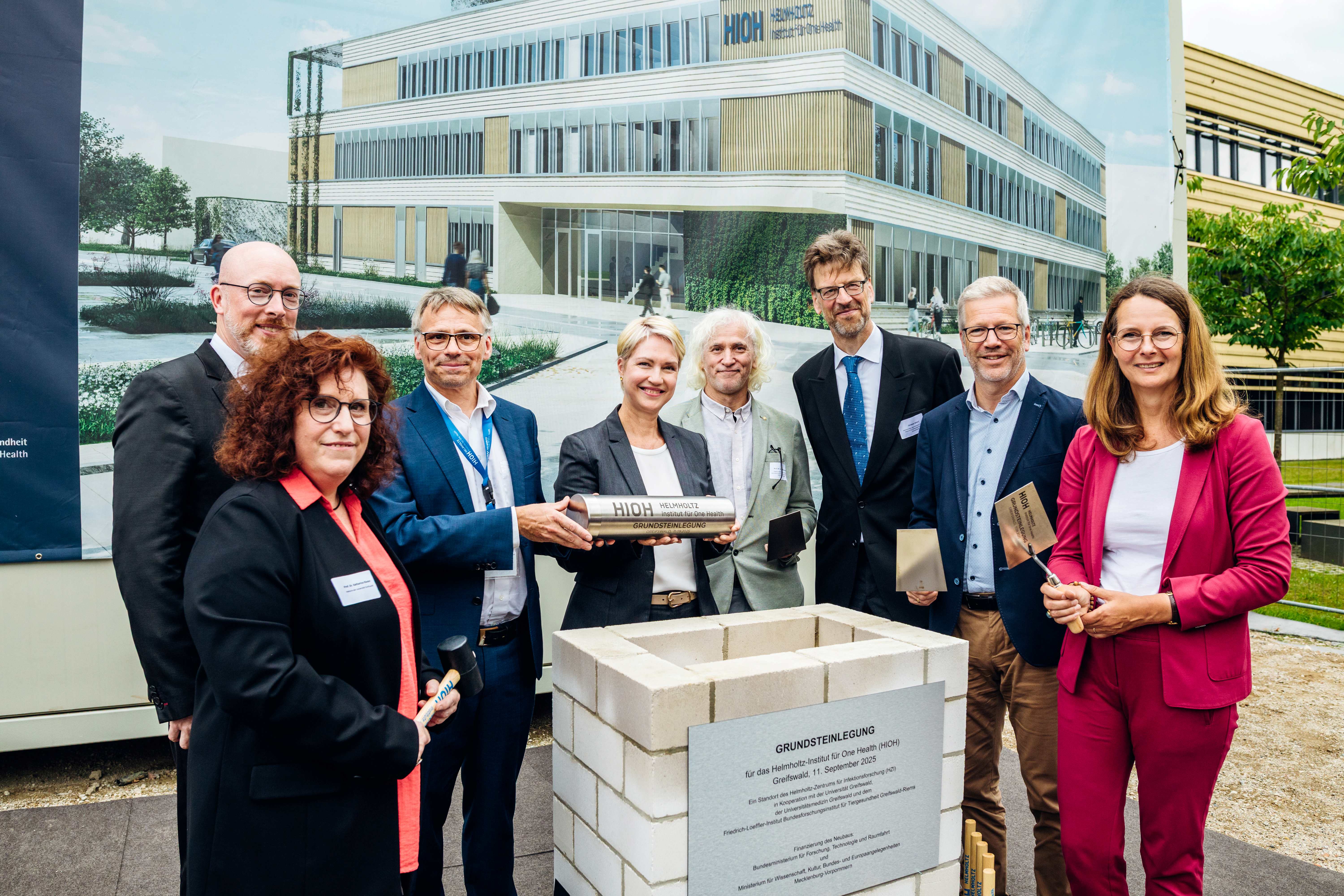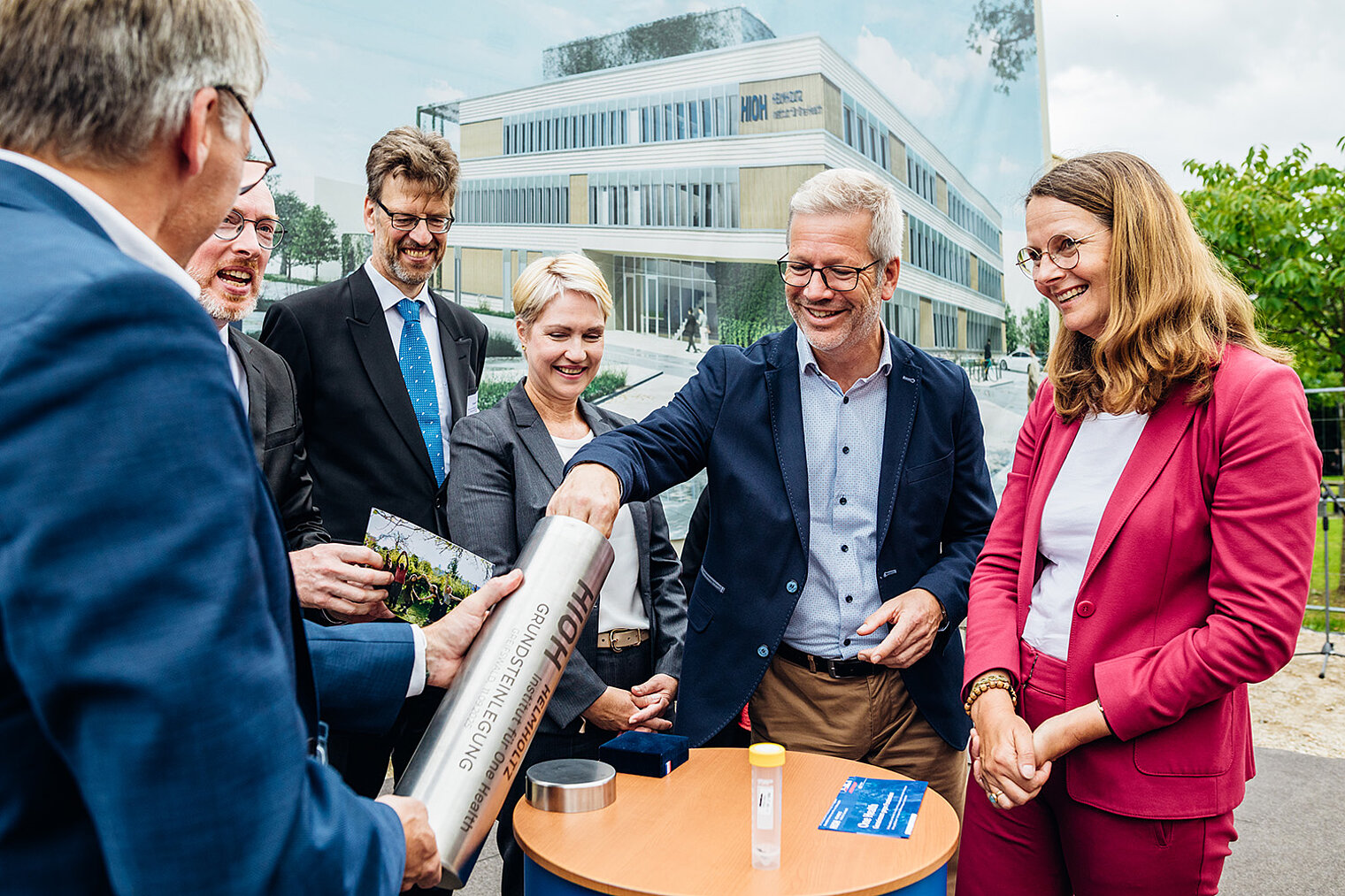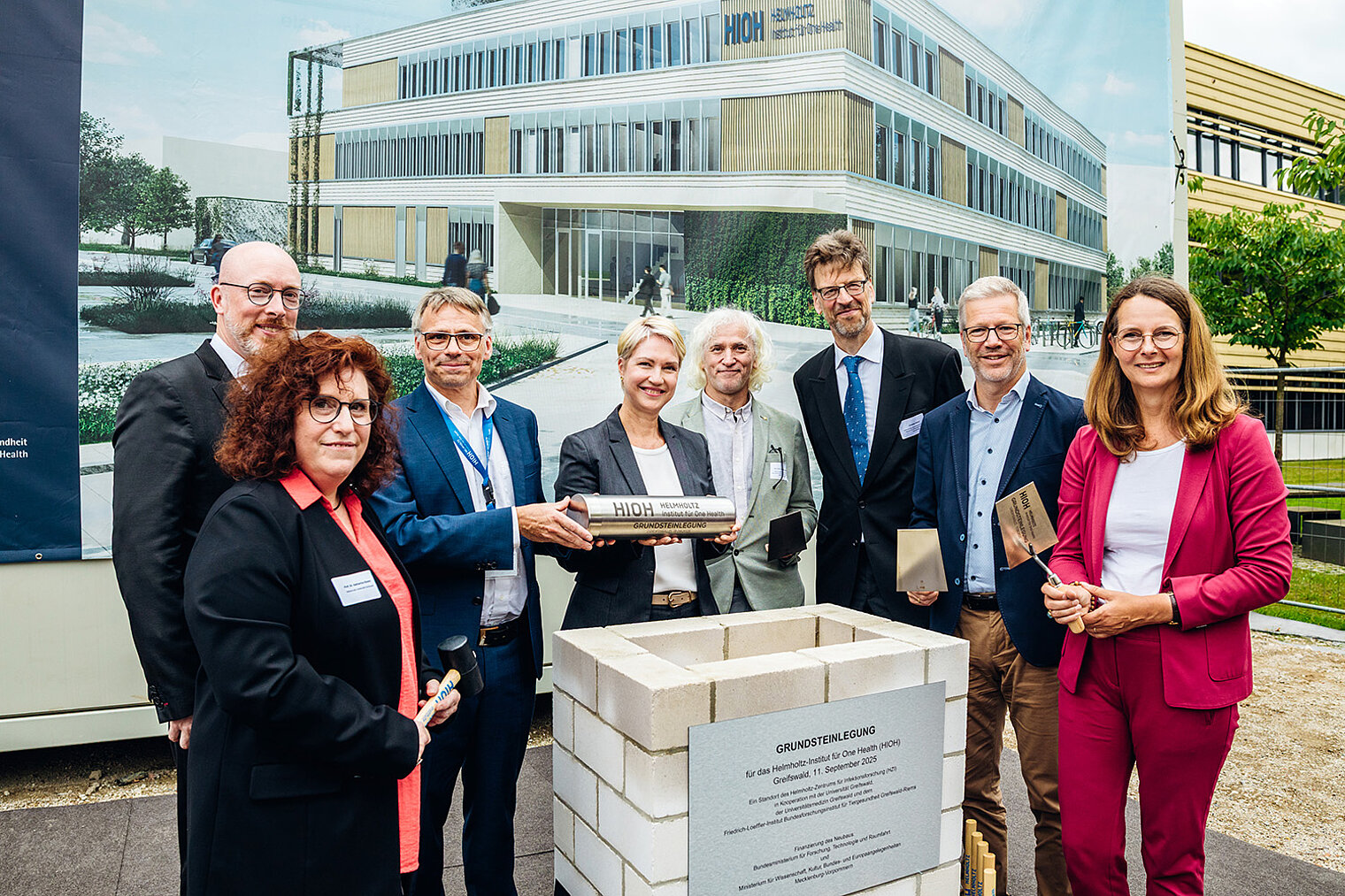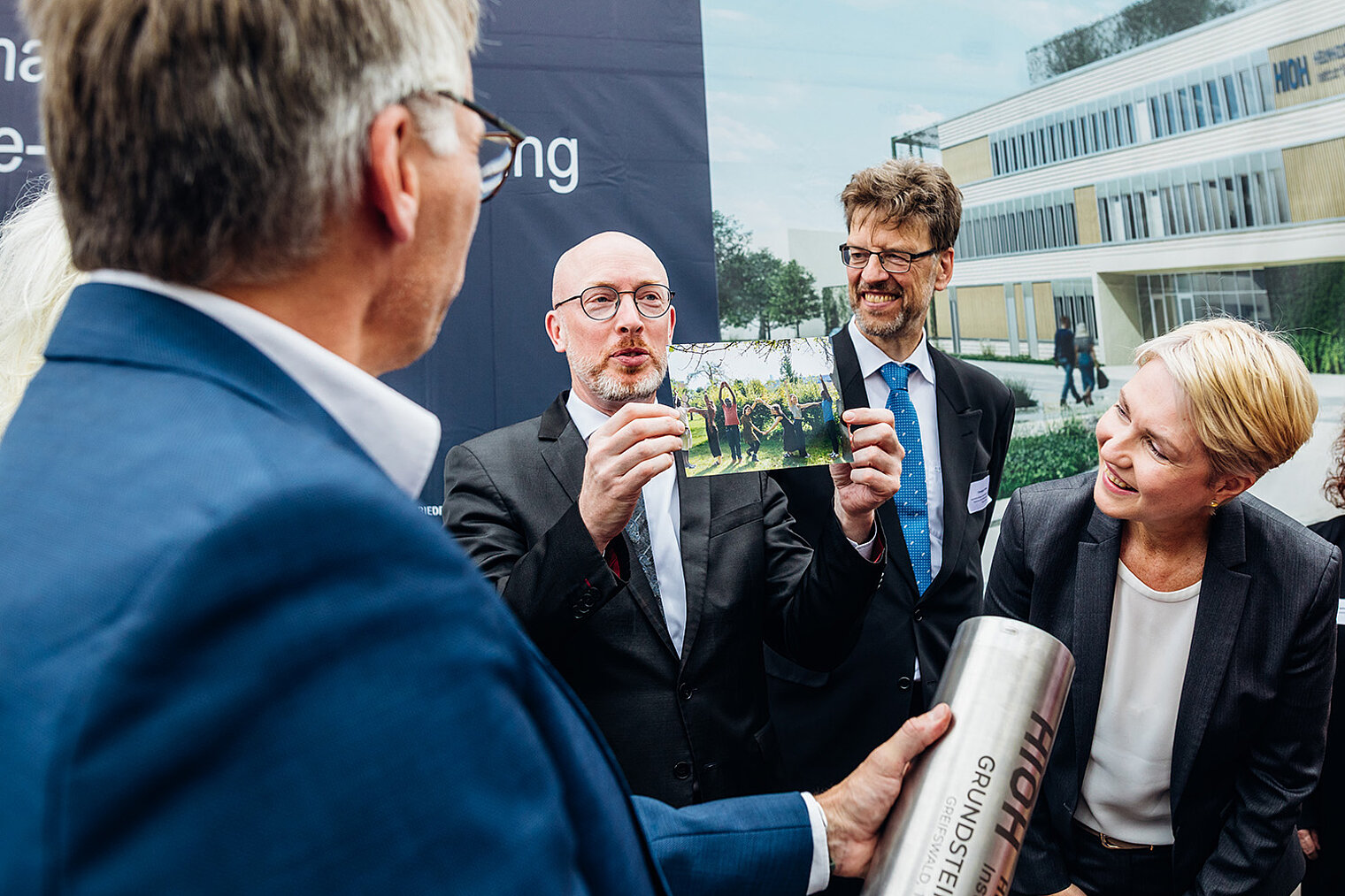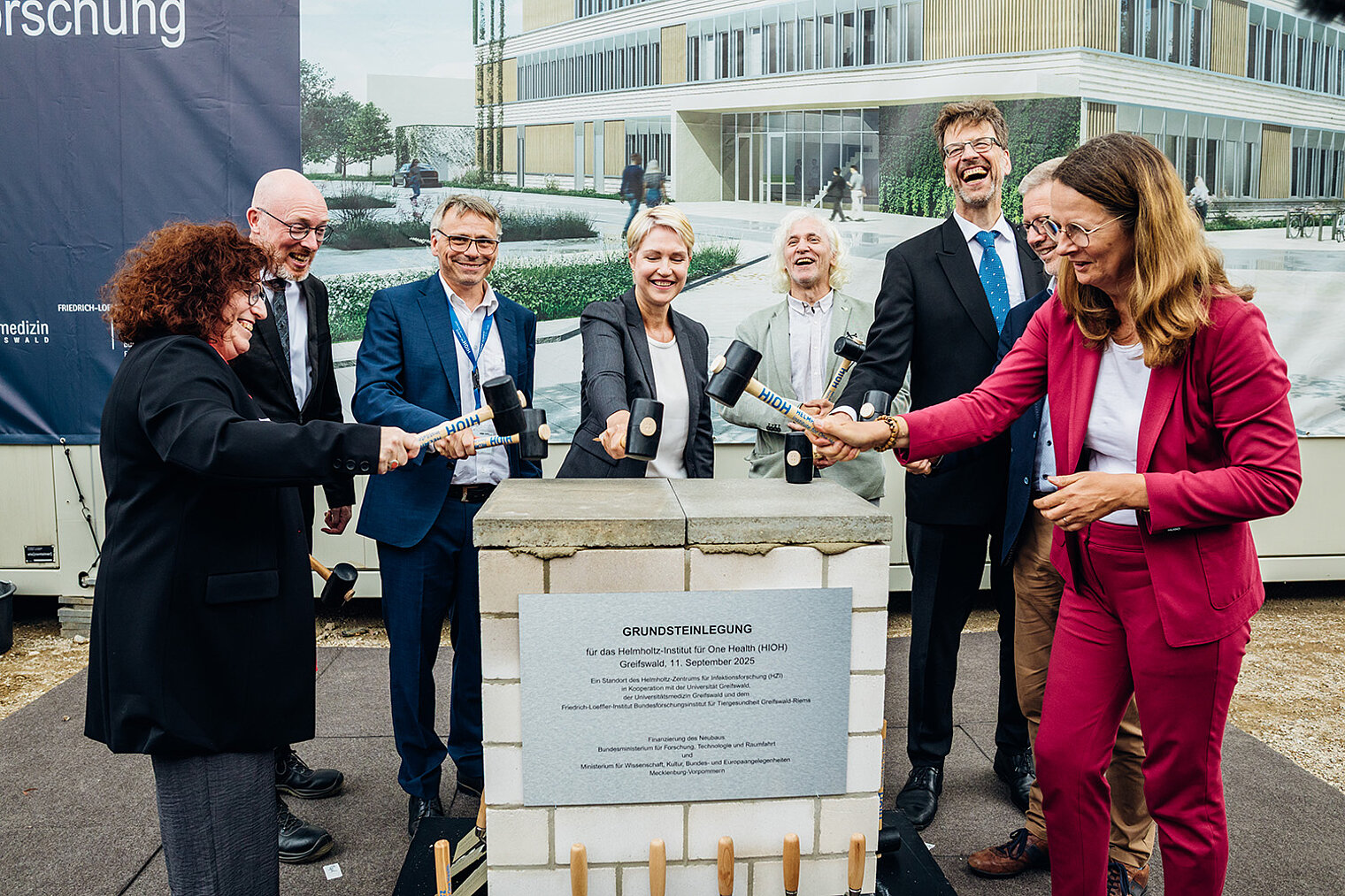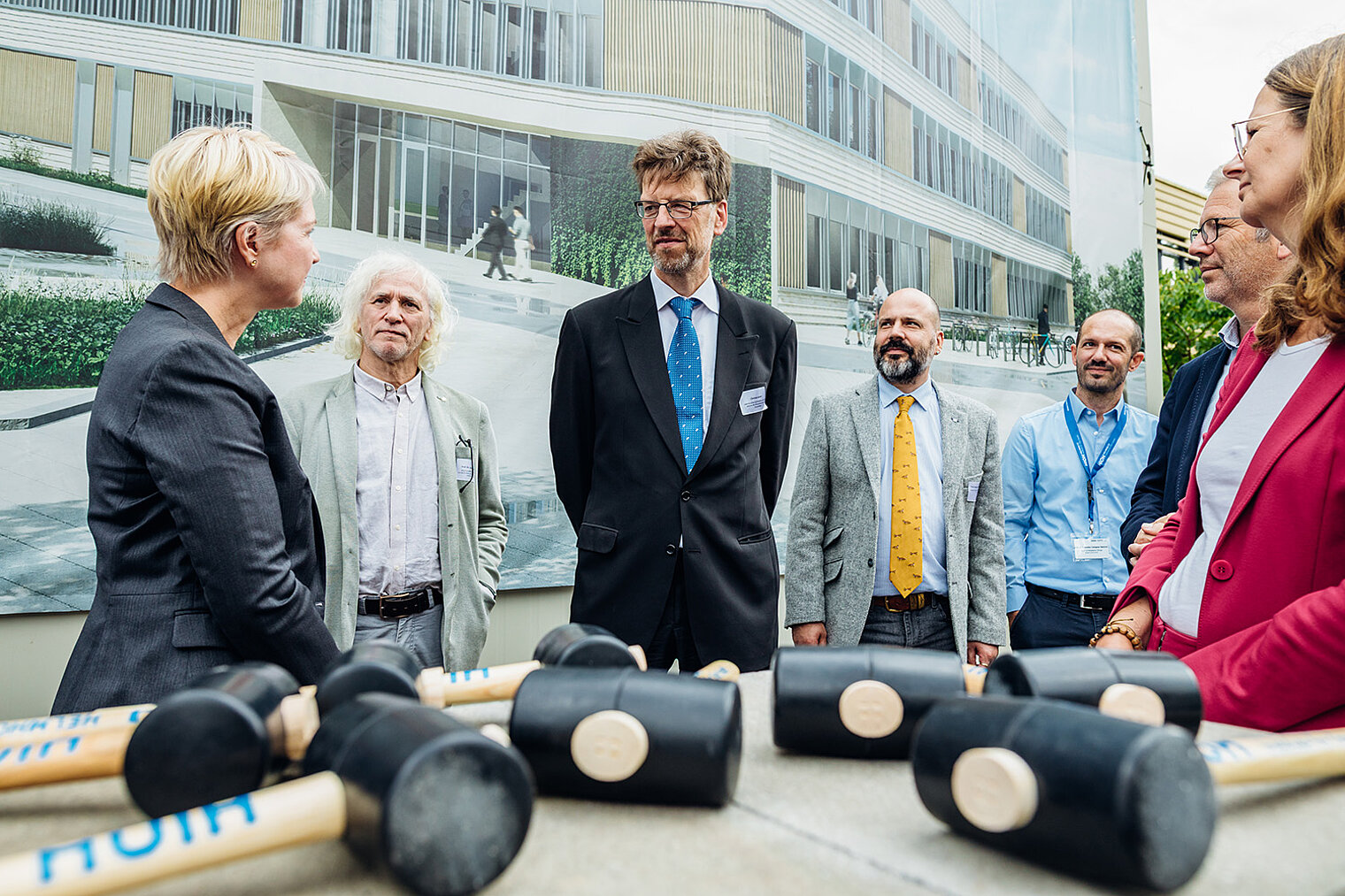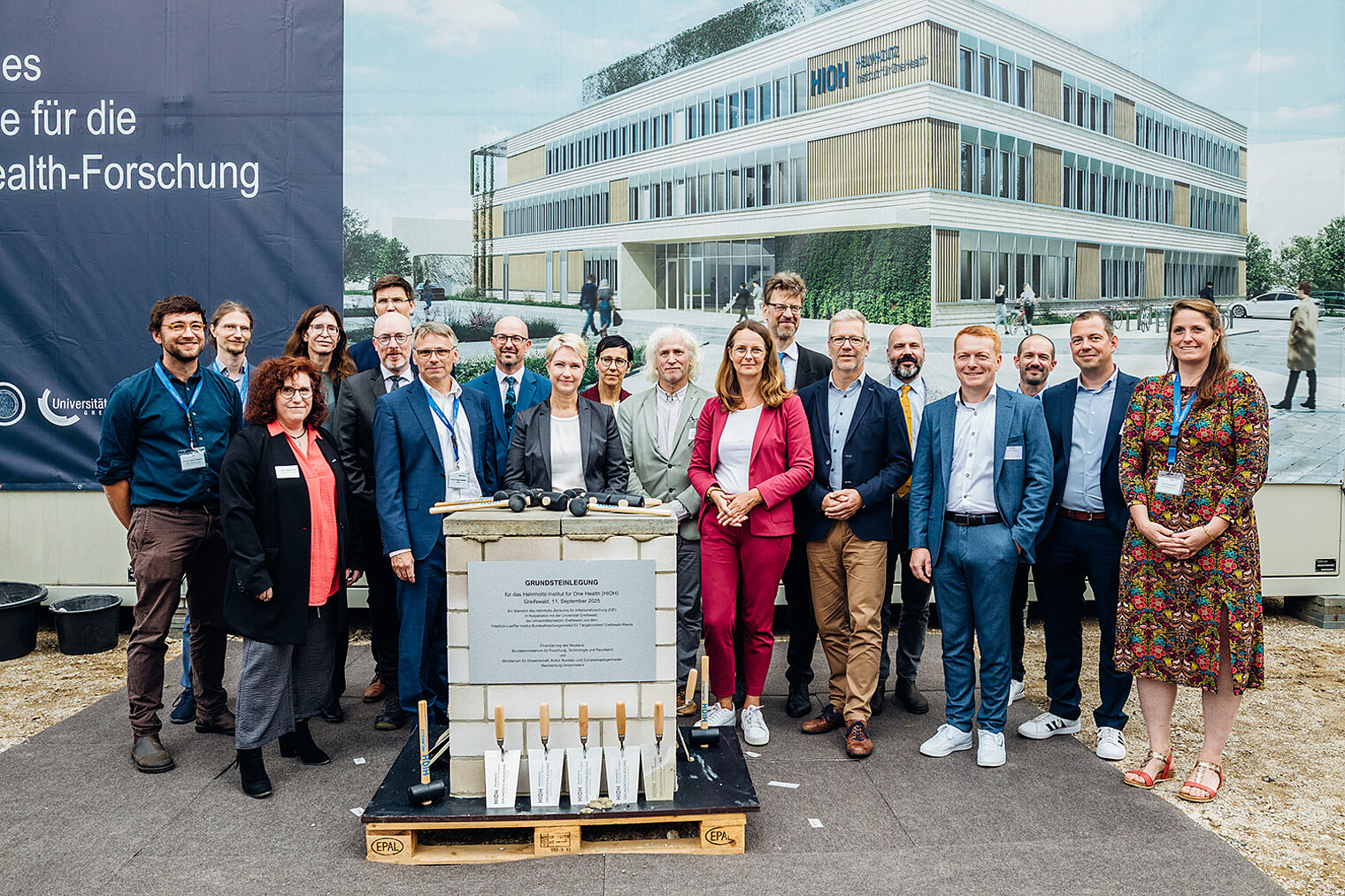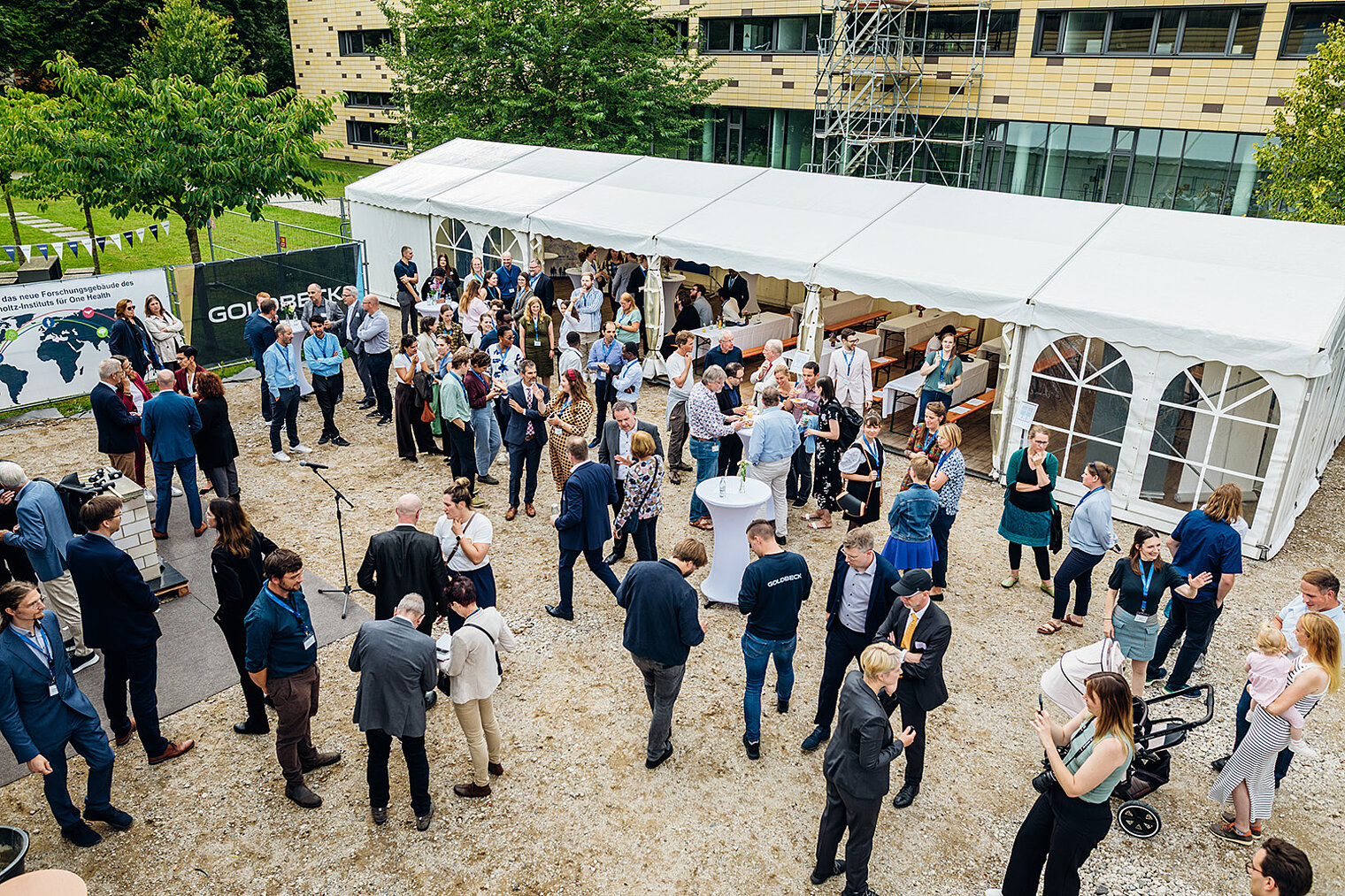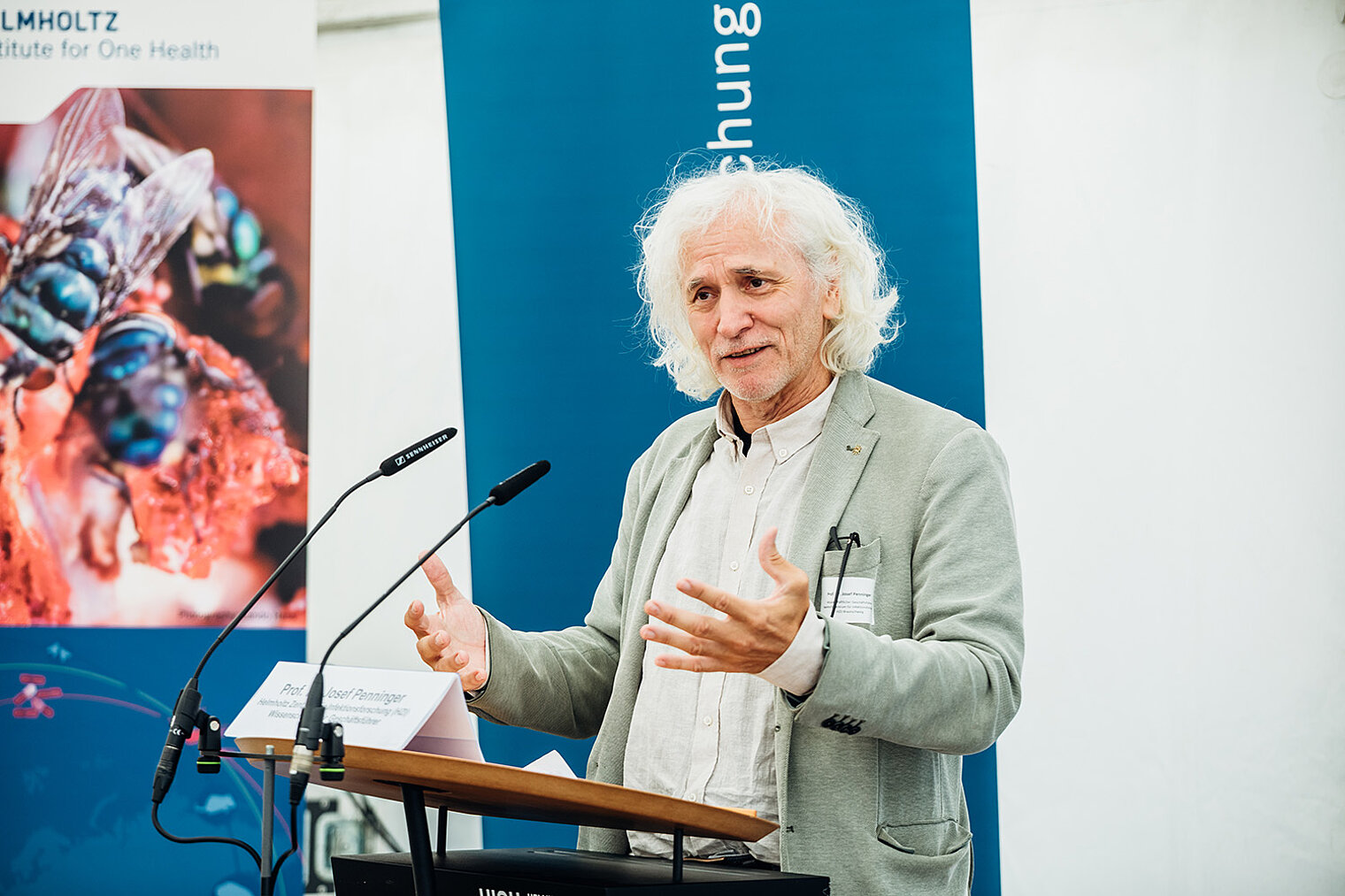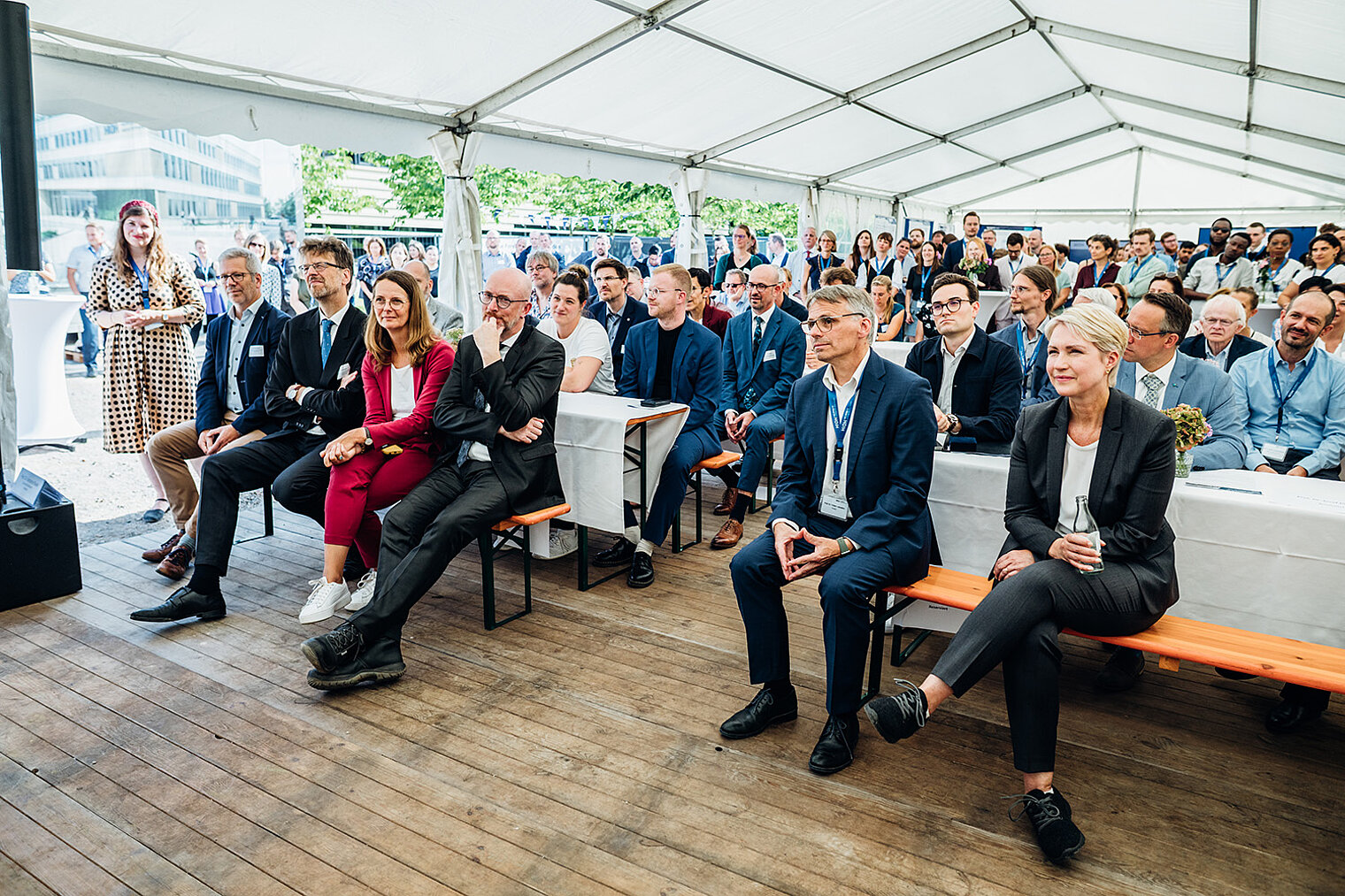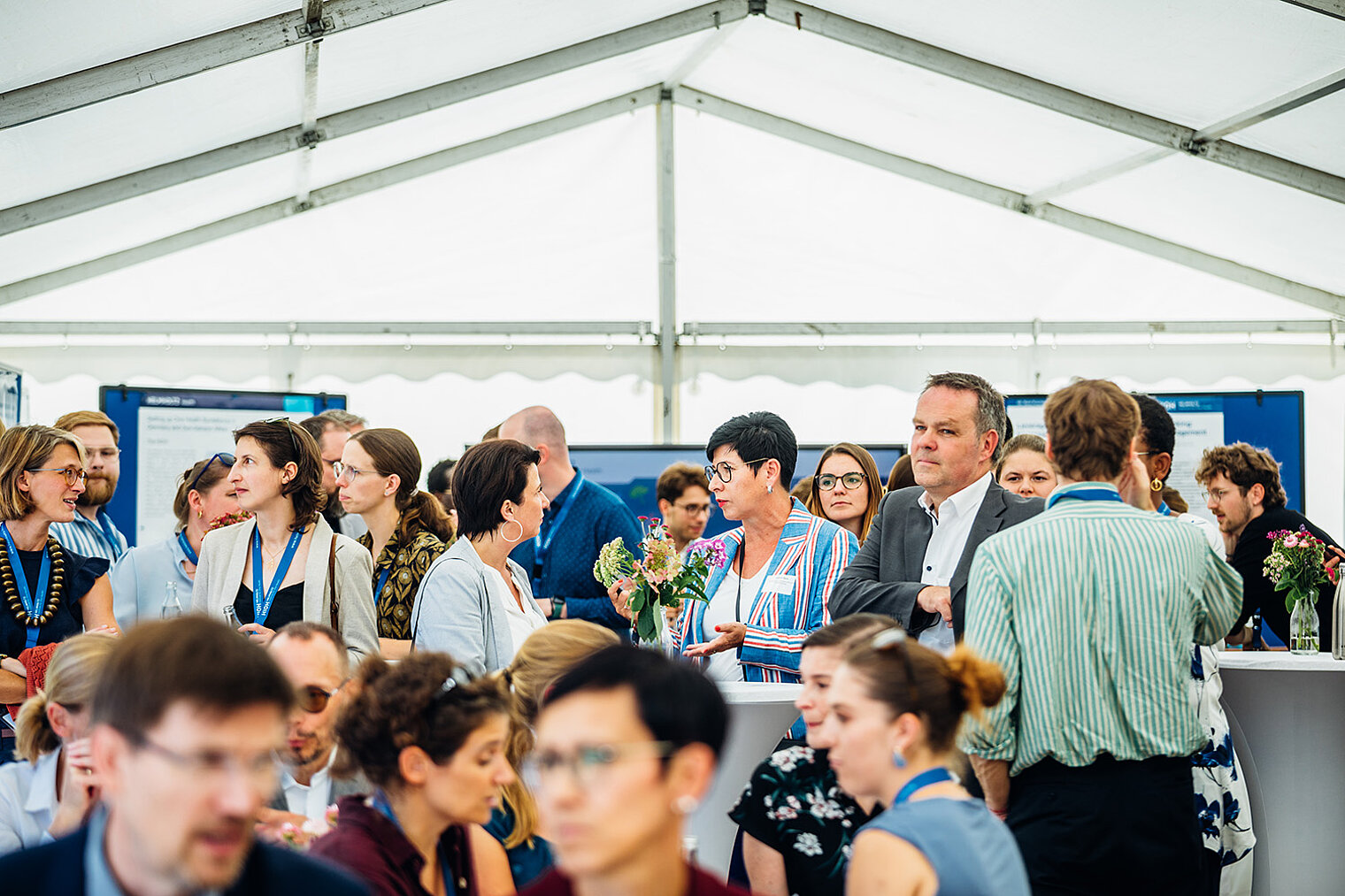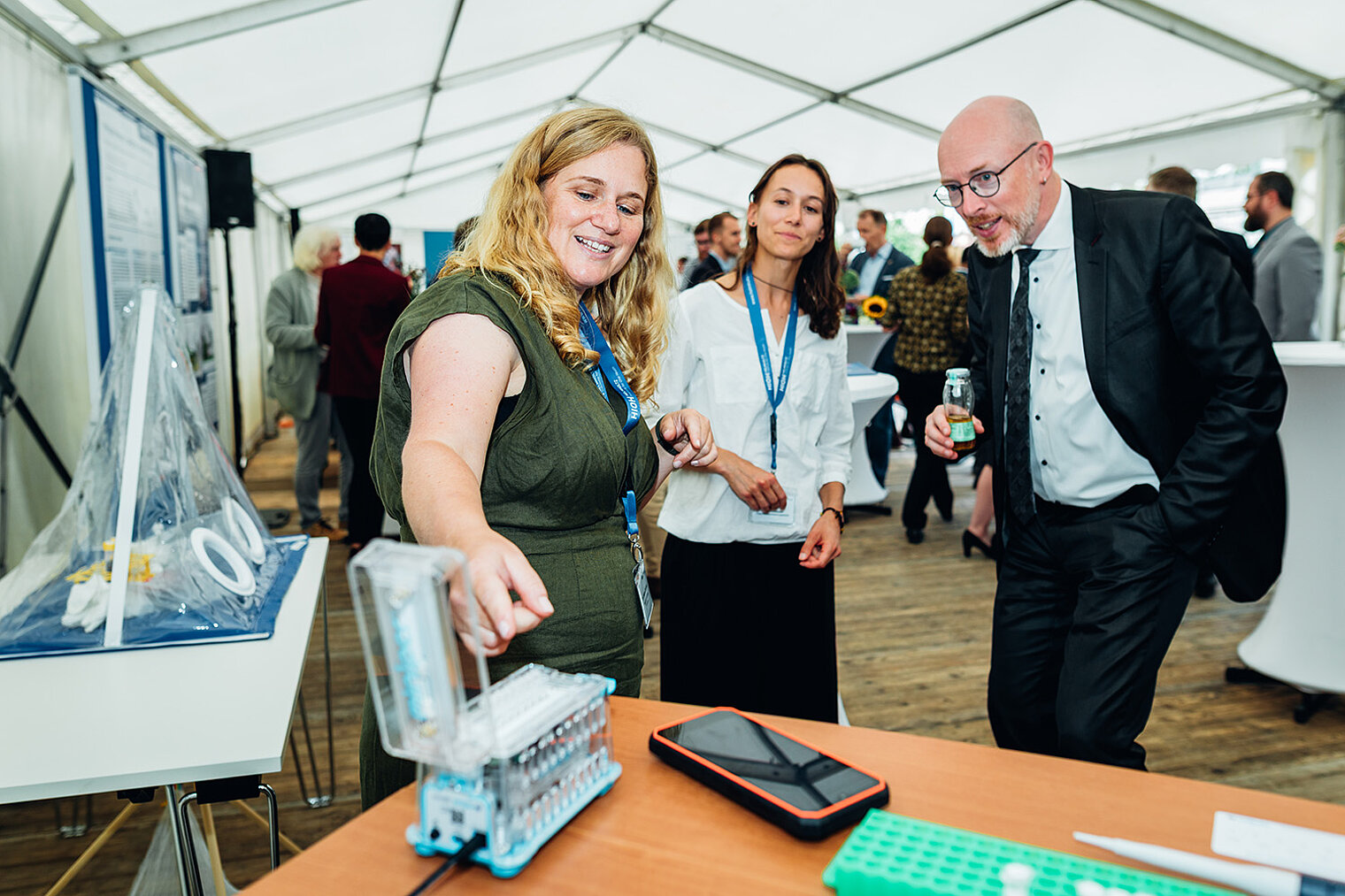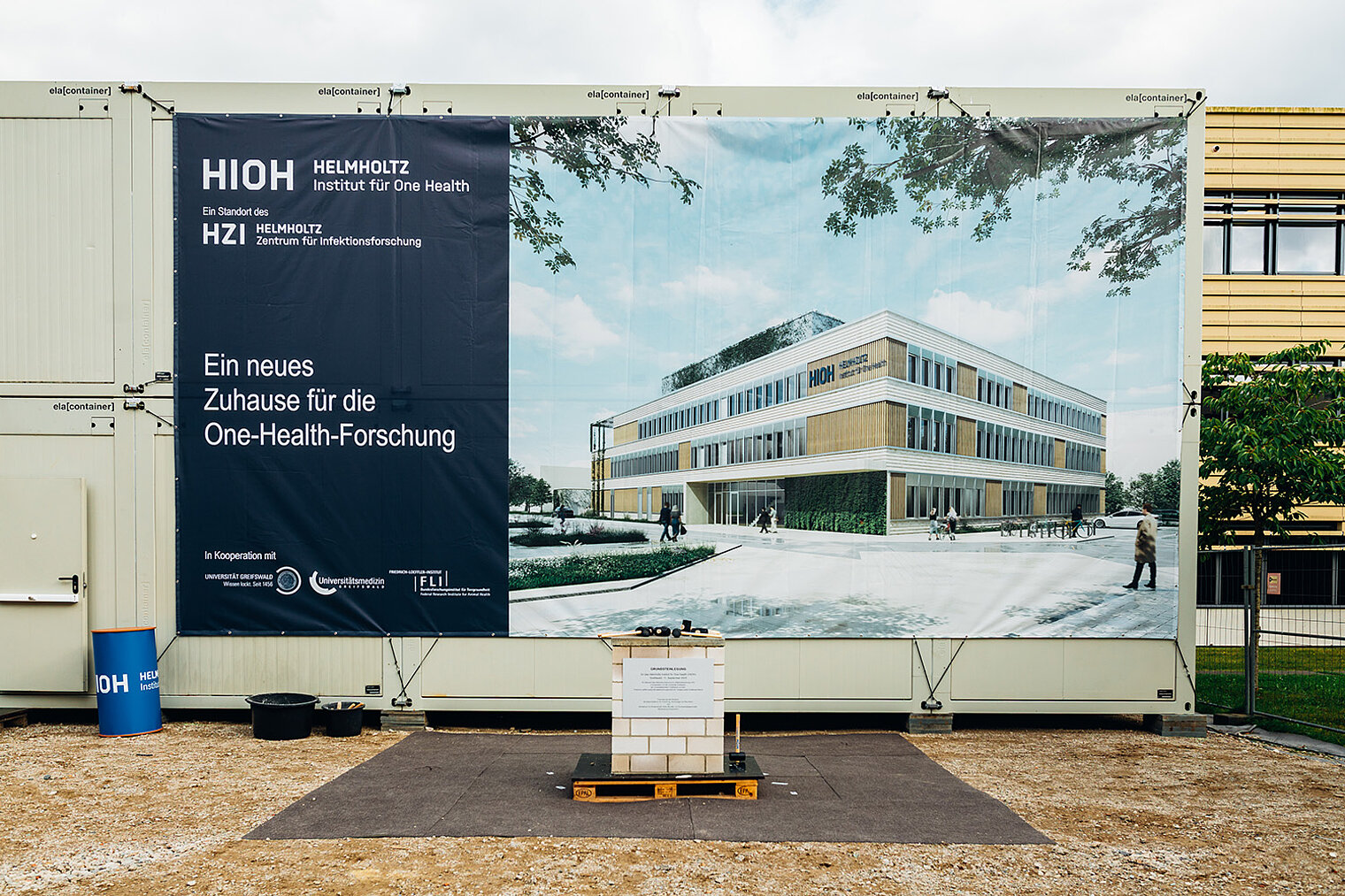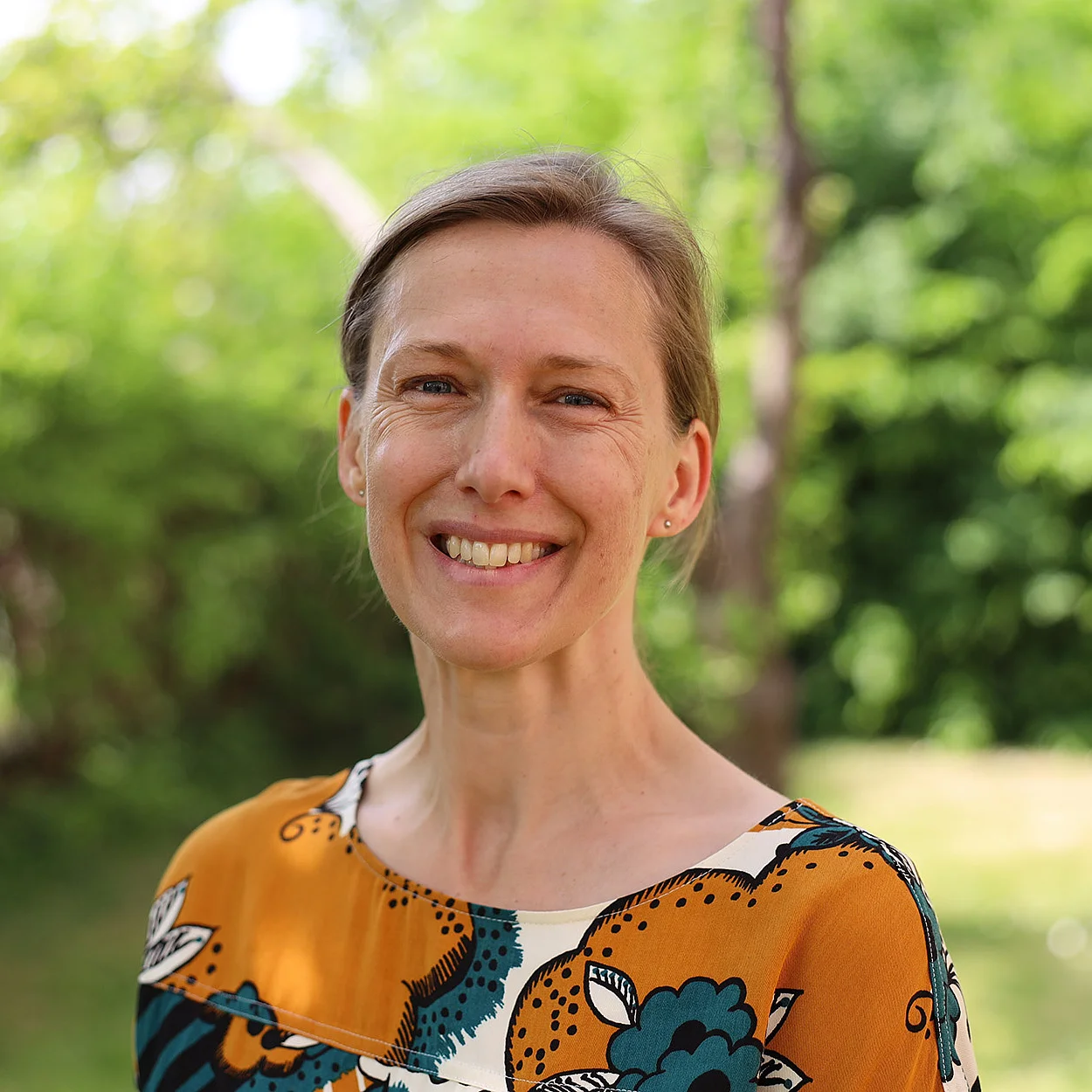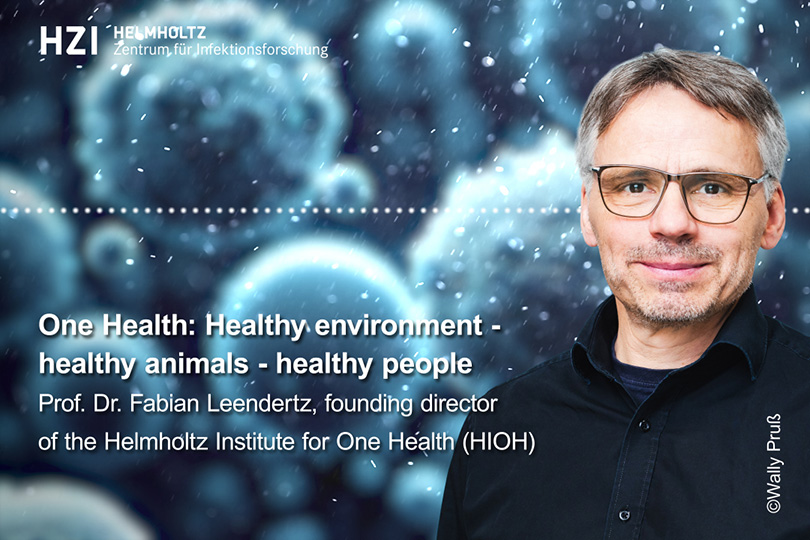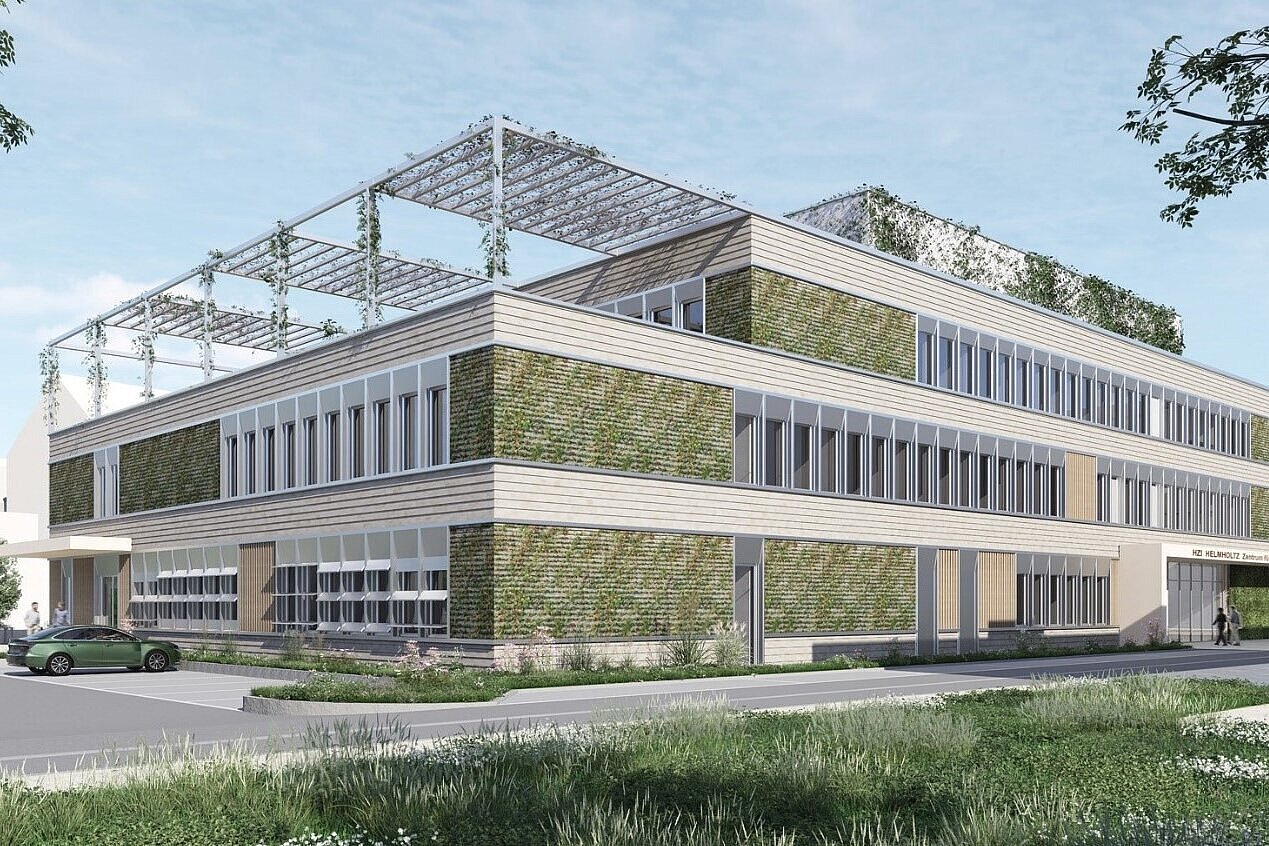One Health – Research for humans, animals and the environment
In his address, HIOH founding director Prof. Fabian Leendertz emphasized the importance of researching zoonotic infections and antimicrobial resistance, particularly in view of an increasingly interconnected world and growing challenges posed by pandemics. In line with the One Health approach – which considers the health of humans, animals and the environment as inseparably linked – scientists from a wide range of disciplines work hand in hand at HIOH. Their goal is to understand how zoonotic diseases emerge, how antimicrobial resistance develops, and how pathogens evolve – thus helping to reduce the risk of future pandemics.
The institute is currently temporarily housed in various buildings of the University of Greifswald and the University Medicine. It will now move into its own dedicated facility, enabling it to permanently fulfil its research mission in Greifswald. The new research building is funded with a total of 38 million euros by the federal government and the state of Mecklenburg-Western Pomerania. The ceremonial laying of the foundation stone on 11 September 2025 marked the official start of construction work on the Berthold Beitz campus of the University of Greifswald. “This new building is a major milestone for strengthening One Health research in Greifswald and for intensifying interdisciplinary cooperation with our founding partners and other local and global stakeholders,” highlighted Fabian Leendertz.
Committed support for a forward-looking initiative
In her welcoming address to more than 100 guests from science, business, politics and the media, Mecklenburg-Western Pomerania's Minister-President Manuela Schwesig stressed the importance of Greifswald as a research location. “Infectious diseases can be transmitted between animals and humans, with the environment and climate playing a decisive role. Many of these dynamics are still poorly understood. For the past three years, the Helmholtz Institute for One Health in Greifswald has been working to shed light on these interconnections. We are proud to have this institute here in Mecklenburg-Western Pomerania, and I am delighted that today we are laying the foundation stone for a new, modern institute building.”
Prof. Josef Penninger, Scientific Director of the Helmholtz Centre for Infection Research (HZI), emphasized the excellent research conditions at the HZI site in Greifswald: “From our local Baltic Sea coast to the African rainforest, the HIOH collects unique research data and generates insights that help us better understand the complex interplay between infectious diseases, humans, animals and the environment. The new research building will provide an outstanding home base for world-class research, with an impact visible far beyond Germany and Europe. This is an absolutely fantastic development, which I fully support.”
Prof. Katharina Riedel, Rector of the University of Greifswald, also extended her best wishes to the institute: “Greifswald's research in the field of One Health is wide-ranging and highly complementary. The new HIOH research building will help raise Greifswald’s international visibility as a world-leading center for One Health research.”
Among the guests were Bettina Martin, Minister for Science, Culture, Federal and European Affairs of Mecklenburg-Western Pomerania; Christian Pegel, Minister of the Interior and Construction of Mecklenburg-Western Pomerania; and Greifswald's Lord Mayor Dr Stefan Fassbinder. Numerous representatives of the scientific community also accompanied the HIOH at this special milestone, including Christian Scherf, Administrative Director of the HZI, and – representing the local partner institutions that have closely supported HIOH since its foundation – Prof. Agnes Flöel, Deputy Scientific Director of the University Medicine Greifswald, and Prof. Sascha Knauf, Head of the Institute for International Animal Health/One Health at the FLI.
Sustainable construction for excellent research
With the start of construction work in July 2025, a new chapter began for the Helmholtz Institute for One Health. The modern laboratory and office building combines sustainability with advanced technical functionality. The construction and service company Goldbeck is building the facility using climate- and environmentally friendly and resource-efficient methods – featuring green façades, a green roof with rainwater retention, and habitats for insects, birds and bats. The surrounding grounds will remain largely unsealed, contributing to local biodiversity and reflecting the One Health approach. At the same time, the new building will provide state-of-the-art and secure working conditions across 2,800 square meters for research into infectious agents, including laboratories up to safety level 3, creating ideal conditions for scientific excellence. The facility will accommodate more than 100 HIOH employees; completion is expected by summer 2027. With this new building, the HIOH in Greifswald is sending a visible signal for innovation, cooperation and the future of infection research in northeastern Germany.
